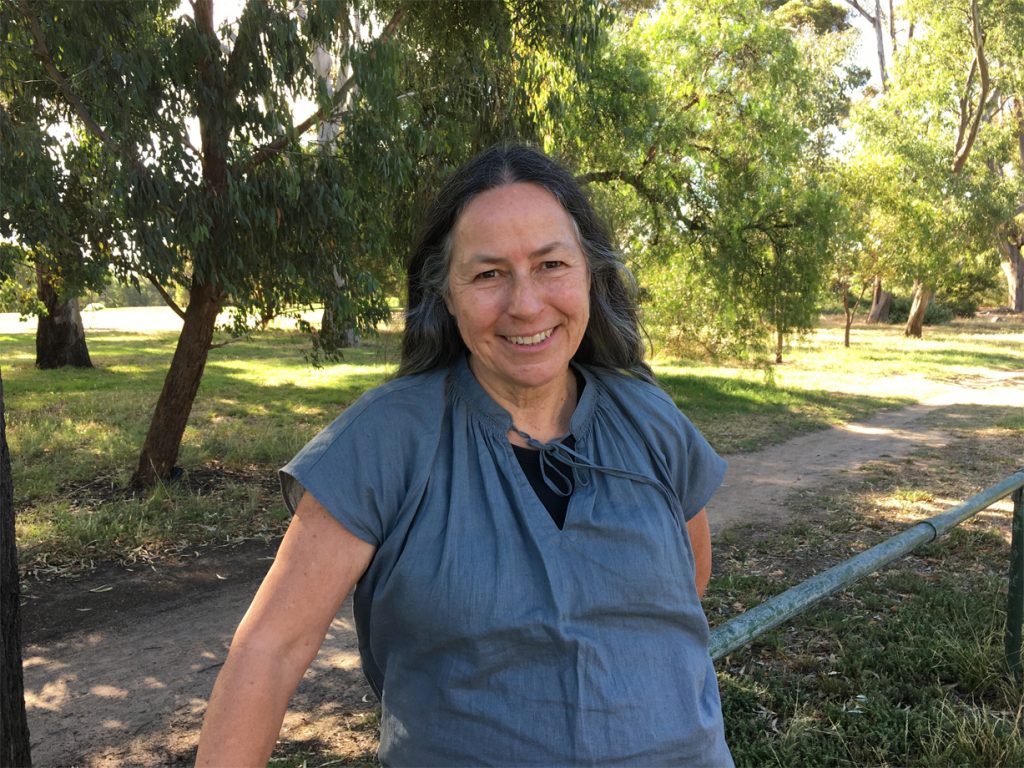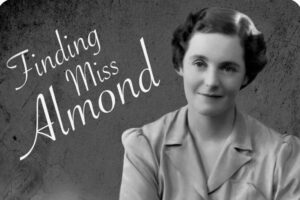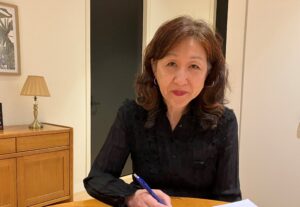
By Mark Brolly
18 February 2022
The Reverend Dr Jill Firth’s life and ministry is proof that, at least sometimes, God indeed does work in mysterious ways.
Dr Firth is the child of atheists who – true to their word that their children could decide for themselves what they believed – supported their daughter when she declared as a teenager that she had become a Christian and later when she worked with the Church Missionary Society.
And despite now being “The Reverend”, the Ridley College lecturer never expected to become ordained.
Married to Archdeacon Len Firth, Dr Firth had no interest in ordination for herself while the couple worked together in mission and ministry for decades, everywhere from the West Australian wheatbelt, to suburban Perth, Groote Eylandt in the Gulf of Carpentaria, and in Hong Kong during its transition from British to Chinese rule.
Back in Melbourne after this, Dr Firth found her way into the Year of Discernment for those considering ordination during “a time of refreshment” for her, after demands of the Hong Kong years. She warned her fellow retreatants that she might become a “runaway bride” as they prepared to be deaconed. But the call to ordained ministry became clear to her during that retreat and she has never looked back.
Now Dr Firth finds herself on the faculty at Ridley, many years after being told she couldn’t study there as a school-leaver.
“It’s all come together,” she said.
“‘Hast thou not seen how thy heart’s wishes have been granted with what He ordained,’ which I learned in school, I think before I was a Christian.
“My life could have been anything different and still have been good but it’s just hilarious to me that all the things I hoped for have come together in whatever I’m doing.”
Read more: Struggle continues despite 30 year milestone for women’s ordination
Dr Firth recalls being a young child in Deer Park encountering God.
“I used to see God at the bottom of my garden. I know I was less than eight … I didn’t know it was God but I used to go and meet this invisible figure,” she said.
“Years and years later after I’d become a Christian, I thought, ‘That was You, wasn’t it?’ So God has been in my life, even though I didn’t know, from very early.
“I was really interested in God even though I didn’t get it from my family and then I became a Christian when I was about 12.”
West then East
It was during her University of Melbourne studies that Dr Firth met Len, who had to return to his home town of Perth to be ordained. They married, moved to the west, and moved into the college where he was preparing for ordination.
The policy of Perth’s then Archbishop Geoffrey Sambell was to send newly ordained priests to the country, so the Firths found themselves in the wheatbelt towns of Trayning, population 180, and Mukinbudin, population 350.
Dr Firth had by then completed her first degree, but there wasn’t a lot of job opportunities for a university graduate. In fact, there was “not a lot of anything”.
Dr Firth had two children in the five years the family spent there. She led mothers’ groups, was a breastfeeding counsellor, led Bible study, became involved in the dramatic society and did China painting, as well as a lot of reading.
There followed another five years in the northern suburbs of Perth at a church plant in Padbury, a third child, and more ministry among mothers and children.
At that point, Archbishop Sambell paid for one or two clergy a year to go to Asia to learn about the church there. Len became fired up about working in the Malaysian state of Sabah, and the pair made plans to go there after training at CMS training college St Andrew’s Hall.
That fell through, so the family went to Groote Eylandt for a three-month locum that lasted 15 months. Then they went to Hong Kong, again with CMS.
Dr Firth took an important lesson in guidance from it.
“One of the things I say about guidance to people who say they don’t know what to do is, ‘Look, the job God wants you to do may not be there yet’, because that job wasn’t there when we set off for Groote Eylandt,” she said.
They left around Easter 1990, staying in Hong Kong until 2000. And in June 1997, Hong Kong’s handover was due to happen. Some affluent businessmen and senior pastors among those choosing to get out early, but the Firths committed to stay beyond 1997.
In their work, the Firths joined anything the Hong Kong churches were doing.
“In the churches, we were preparing for all the eventualities,” Dr Firth said.
“China said that they’d do 50 years of the ‘one country, two systems’ [policy] so if that was true you just wanted to strengthen gospel work like Bible teaching, prayer, discipleship … But some people were preparing to go underground…”
The fear of a Y2K computer shutdown also loomed. Hong Kong was reliant on water from mainland China and water supply – and so much else – reliant on computers. Dr Firth remembers keeping two weeks’ supply of canned food in case the worst happened.
“It was quite an apocalyptic time”, she said.
“But it was a tremendous time of fellowship and heartfelt commitment to Jesus, just so moving.”
Back to Melbourne
In 2000, Len became Principal of St Andrew’s Hall in Melbourne, and Jill returned to her studies – in history, theology and spiritual direction.
“I didn’t really know what I was going to do and I didn’t take any roles because I was pretty burnt out,” she said.
“I was nearing the end of my third year of study and I thought, ‘I’m going to come out of the end of this and what will I do?’”
So Dr Firth approach Bishop Paul White and asked to join the Year of Discernment, even though she didn’t expect to be ordained. She was finally convinced about God calling her to ordination only at the diaconal retreat
“For me, once I was on the ordination path, I wasn’t choosing between deacon and priest, I was choosing between getting ordained and not getting ordained,” Dr Firth said.
After curacies at Bulleen and West Brunswick, she was approached to teach Hebrew at Ridley. She also spent five years as an Associate Priest at St Paul’s Cathedral, where her son-in-law the Very Reverend Dr Andreas Loewe is Dean.
At Ridley, she has organised five Evangelical Women in Academia conferences at the request of the Principal, the Reverend Dr Brian Rosner, and the Reverend Dr Tim Foster. The results were incredible.
“I think they thought we’d have 12 ladies over for morning tea but we 120 people from all over Australia,” Dr Firth said of the first conference.
And what does she think now of her decision to be ordained?
“I’ve spent a lot of my life as a lay person and it wasn’t ineffective. I don’t think ordination’s an improvement … I think it’s more important for me to be doing the thing that God gave me to do,” Dr Firth said.
This profile of the Reverend Dr Jill Firth is part of a series on women in ministry, marking the December 2022 anniversary of 30 years since women were ordained in the Anglican Diocese of Melbourne.







